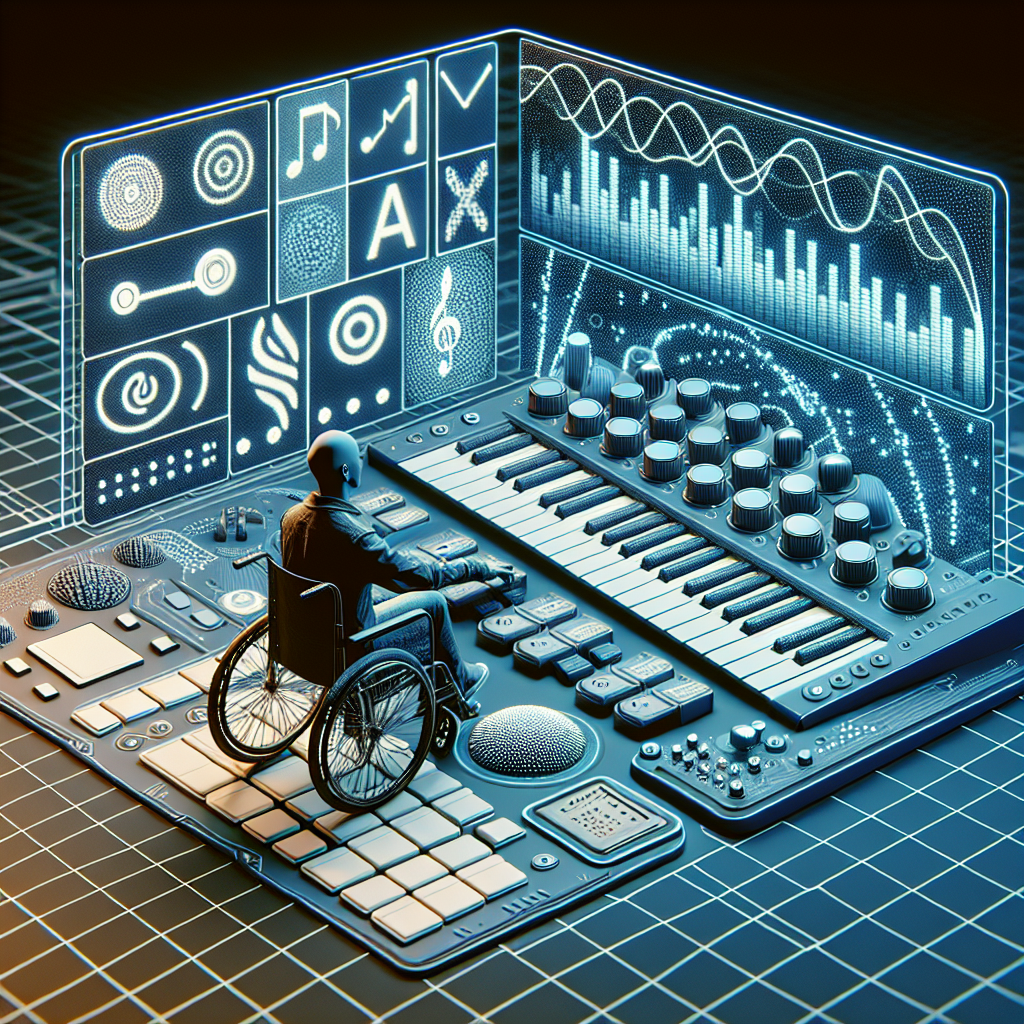Music production has long been a field dominated by skilled individuals with a deep understanding of instruments, software, and technology. However, for people with disabilities, these barriers can often be insurmountable, limiting their ability to fully participate in the music creation process. Fortunately, advancements in artificial intelligence (AI) are revolutionizing music production and making it more accessible for individuals with disabilities.
AI technology has the potential to level the playing field for individuals with disabilities by providing tools and solutions that cater to their specific needs. From voice recognition software to adaptive instruments, AI is opening up new possibilities for individuals who may have previously been excluded from the music production process.
One of the key ways in which AI is improving accessibility in music production for people with disabilities is through the development of adaptive software and hardware. These tools are designed to be easily customizable and adaptable to the specific needs of the individual user. For example, voice recognition software can be used to control music production software, allowing individuals with limited mobility to create music using only their voice.
Similarly, adaptive instruments can be tailored to the unique needs of the user, whether that be through changes in size, shape, or functionality. These instruments can be controlled using a variety of inputs, such as eye tracking technology or motion sensors, making it possible for individuals with physical disabilities to play music in ways that were previously impossible.
AI is also being used to develop innovative new ways of interacting with music production software. For example, researchers at the Georgia Institute of Technology have developed a system called “AIVA” (Artificially Intelligent Virtual Artist) that uses AI to analyze and generate music based on the user’s preferences. This system can be used by individuals with disabilities to create music without the need for traditional instruments or technical skills.
In addition to adaptive software and hardware, AI is also being used to improve accessibility in music production through the development of new interfaces and control systems. For example, researchers at the University of Sussex have developed a system called “Mogees” that uses machine learning algorithms to translate gestures into musical sounds. This system can be used by individuals with physical disabilities to control music production software using simple hand movements.
Overall, the potential of AI to improve accessibility in music production for people with disabilities is vast. By providing tools and solutions that cater to the specific needs of individuals, AI is making it possible for a wider range of people to participate in the music creation process.
FAQs:
Q: How can AI help people with disabilities in music production?
A: AI can help people with disabilities in music production by providing adaptive software and hardware, new interfaces and control systems, and innovative ways of interacting with music production software.
Q: What are some examples of adaptive software and hardware for music production?
A: Examples of adaptive software and hardware for music production include voice recognition software, adaptive instruments, and systems that use machine learning algorithms to translate gestures into musical sounds.
Q: How can individuals with disabilities benefit from AI in music production?
A: Individuals with disabilities can benefit from AI in music production by gaining access to tools and solutions that cater to their specific needs, allowing them to create music in ways that were previously impossible.
Q: What are some challenges in using AI for improving accessibility in music production?
A: Some challenges in using AI for improving accessibility in music production include the need for further research and development, as well as the potential for biases and limitations in the technology.
Q: What is the future of AI and accessibility in music production?
A: The future of AI and accessibility in music production is bright, with continued advancements in technology making it possible for individuals with disabilities to fully participate in the music creation process.

